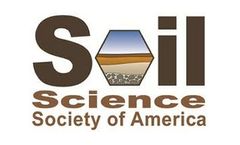Production From Sugarcane Articles & Analysis
8 articles found
These traits make sugarcane an extremely sustainable solution for a bio-based economy and enable the transition away from a petroleum-based production model. ...
But most unluckily we are producing poison from the sugarcane. We are depriving this AMRUT from the people. We must reverse this situation. ...
Standards that credibly and effectively certify sustainable commodity production are important to both producers and consumers. Agriculture is the dominant user of water worldwide, so water sustainability in agriculture is an area of particular interest. In conjunction with Bonsucro, a sustainability standard setting body for the sugarcane sector, an indicator was developed to ensure that ...
This paper deals with the potentials and opportunities of Sugarcane Agricultural Residues (SARs) for green power production in sugarcane-growing countries. ...
Batch ethanol fermentations using sugarcane juice with immobilised yeast were carried out in shaking flasks in order to investigate the influences of different pH values, temperatures, initial total soluble sugar concentrations and particle stuffing rates on ethanol productivity. The results showed that a suitable pH, temperature, initial total soluble sugar concentration and particle stuffing ...
A watershed analysis of nonpoint-source pollution associated with sugarcane (Saccharum officinarum L.) production was conducted. Runoff water samples following major rainfall events from two representative sugarcane fields (SC1 and SC2) were collected and analyzed. ...
Improving soil organic matter and soil fertility are important factors in the sustainability of sugarcane (Saccharum spp.) production. A 3-yr field trial was established in 2004 on a sandy Alfisol in Florida to compare the effect of organic and inorganic nutrient sources on sugarcane production. The three nutrient sources were (i) mill mud (filter cake, cachaza), (ii) local standard fertilizer, ...
Water and N are often limiting factors for sugarcane (Saccharum spp.) production. This study was conducted to determine the effect of different levels of water availability on sugarcane growth, yield, and responses to N application, and also to evaluate the effectiveness of alternative N application methods. Three irrigation levels (20% below ...





